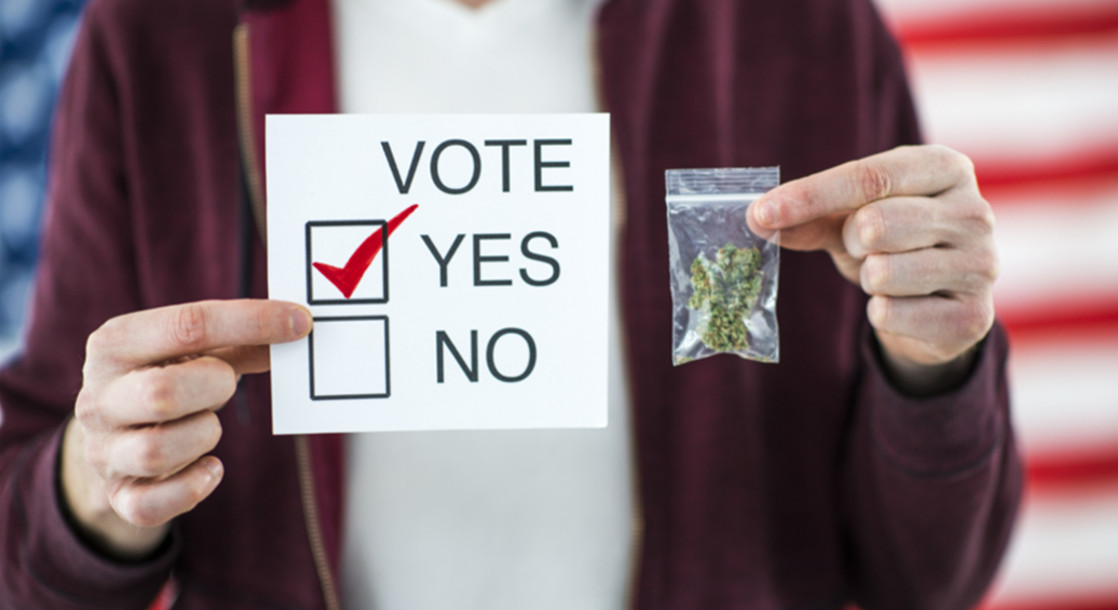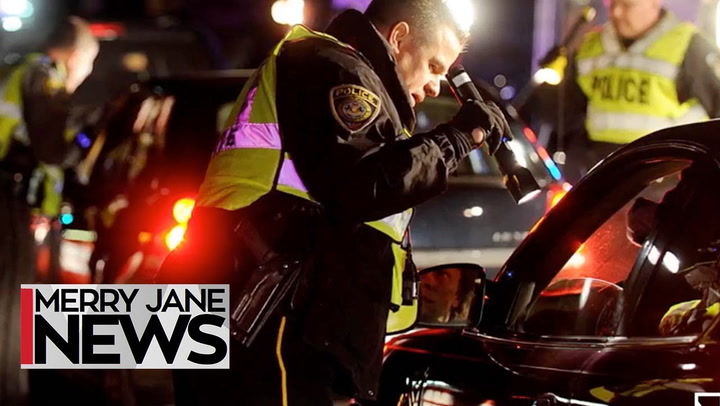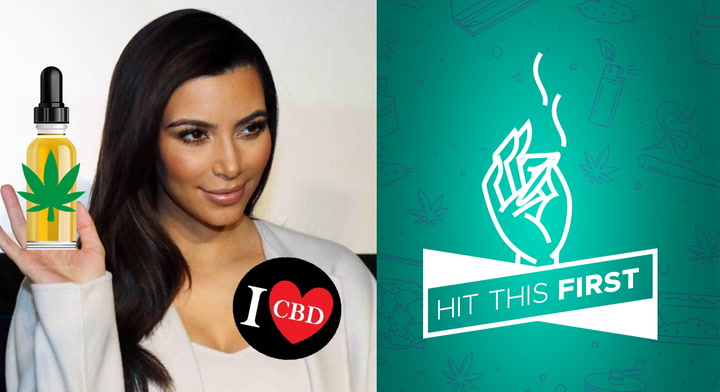Election Day has become a particularly tense time for Americans over the past few years, but thankfully there’s good news this cycle for cannabis advocates. We’ve been tracking the progress of several pot legalization initiatives brought to the ballot box by activists in 2018, and now the wait is over to find out if they succeeded. In case you were overwhelmed by the battle of Trump vs. America, here’s a breakdown of what happened for legal weed in the midterm elections.
Michigan | Proposal 1 | Recreational Legalization
Proposal 1 allows the use and purchase of marijuana products obtained from state-licensed retailers in Michigan. Adults over 21 would be allowed to keep up to 10 ounces of weed in their household, grow as many as twelve pot plants, and revise current cannabis-related criminal violations to civil infractions. Retail sales would be taxed at 10% to finance the cost of implementing a legal pot program, as well as “schools, roads, and municipalities where marijuana businesses are located.”
Result: Prop 1 was approved by 57% of Michigan voters! Way to go, Wolverines!
The Detroit News reports that public possession of 2.5 ounces of pot in Michigan will be legal “by Dec. 6, perhaps sooner if election results are certified prior to the deadline,” but that it could take “more than a year for recreational pot shops to begin retail sales.” Michigan is projected to become one of the biggest markets for adult-use marijuana, which is also great news for the growing legal cannabis industry.
Missouri | Amendment 2, Amendment 3, Proposition C | Medical Legalization
There were concerns that Missouri’s ballot this year might be confusing for voters, as it contained not just one, but three measures to legalize medical marijuana in the Show-Me State.
Out of this trio, MERRY JANE endorsed Amendment 2, which allows doctors to prescribe medical cannabis patients suffering from one of ten qualifying conditions, permits licensed marijuana businesses, and authorizes home cultivation of up to six plants for medical users (though they must be registered with the state). We preferred this option over the provisions of either Amendment 3 or Proposition C, as Amendment 2 offers the ironclad protection of a constitutional amendment, while guaranteeing patients the freedom to grow their own medicine. So how did it do?
Result: It appears Missourians aren’t so easily puzzled after all — Amendment 2 was approved by over 65% of voters! More like ‘Show me the medical marijuana!’ Amendment 3 and Proposition C’s more restrictive rules for reefer didn’t fare so well, with each receiving double-digit disapprovals from the electorate.
No problem, though; legal plant medicine is still on its way. The Springfield News-Leader reports that medical marijuana patients and caregivers should be able to start applying for state licenses by approximately June 6th of next year — the deadline for officials to open the process to the public.
North Dakota | Measure 3 | Recreational Legalization
The Roughrider State’s Measure 3 allows all adults over age 21 to possess, use, grow, and sell cannabis without restrictions (!), while also amending current code to require the “automatic expungement of the record of an individual who has a drug conviction for a controlled substance that has been legalized.” We had our fingers crossed hard for this one, so how did it do?
Result: No dice for North Dank-otans — while 40.5% of voters approved Measure 3, 59.5% came out against it, defeating the initiative. Bummer…
Utah | Proposition 2 | Medical Legalization
It was a major fight to even get a medical marijuana measure (which authorizes use for those with certain qualifying conditions) on the ballot this election in such a reliably conservative state — then lawmakers came out and said they’d legalize medical marijuana regardless of what voters did!
However MERRY JANE strongly recommended that Utahns vote for Prop 2 anyway, in order to reaffirm support for medical marijuana, while sending a clear message to lawmakers that they can’t renege on their deal — Utah’s patients in need deserve access to cannabis-based medicine.
Result: The times are a-changing in Utah: voters approved Proposition 2 by 53%!
Yet this may leave a bad taste in the mouth of Prop 2’s original backers, now that the state legislature has promised to rewrite it under a more restrictive model. The Church of Jesus Christ of Latter-day Saints — an institution renown for its powerful influence over Utah’s social and legal affairs — expects as much, issuing a statement after polls closed yesterday hoping that “prompt legislative action will address the shortfalls of the initiative which have been acknowledged by advocates of Proposition 2. The legislative alternative is better public policy and has broad support among Utahns.”
Thankfully, the latest draft of the legislature’s plan keeps many of the proposals of Proposition 2, but now it’s a question of when they’ll actually pass it — stay tuned!
Other Votes on Weed
In Colorado, where weed’s already legal for adults and medical patients, voters decided to remove a definition of industrial hemp from its state constitution, which supporters say will allow the hemp industry more flexibility once the federal government legalizes this non-psychoactive variety of cannabis.
In Ohio, a state still lagging in launching its medical marijuana program, six cities were considering measures to decriminalize cannabis offenses, and five of them passed: Dayton, Fremont, Norwood, Oregon, and Windham all approved reduced penalties for misdemeanor marijuana offenses, as reported by Marijuana Moment. While these efforts fall short of the benefits of actual legalization, hopefully they’ll make life easier for everyday tokers in the Buckeye State.
In Wisconsin, sixteen counties and two cities simply wanted voters’ opinions of cannabis legalization, and put non-binding questions on the ballot to find out if they really want legal weed. The feelings of these citizens couldn’t be clearer — every single one of these ballot questions was approved by voters, according to Marijuana Moment. Maybe Wisconsin can soon join Michigan in creating a legal weed bastion in the Midwest…
***
Aside from North Dakota, yesterday’s results aren’t really too surprising if you’ve been paying to public opinion on pot: two out of three Americans support legalizing marijuana, according to Gallup’s latest poll in October. This is exactly why voting matters — in an increasingly contentious country, cannabis legalization is one of the few causes that a silent majority actually supports, which is why getting to the polls to make our voices heard on pot is critical for progress in the U.S. That said, we’re proud of the organizers behind all of these initiatives, successful or not, for putting in the time to make real reform happen.
From California becoming the first state to legalize medical marijuana in 1996, to now 33 states allowing it for either adult-use or medical purposes, all of these strides occurred due to the actions of voters. Even though the federal government still hangs onto a failed prohibition, their resistance to legalization becomes more costly everyday. As the fight for cannabis reform continues, keep up with MERRY JANE — we’ll be here each step of the way.











